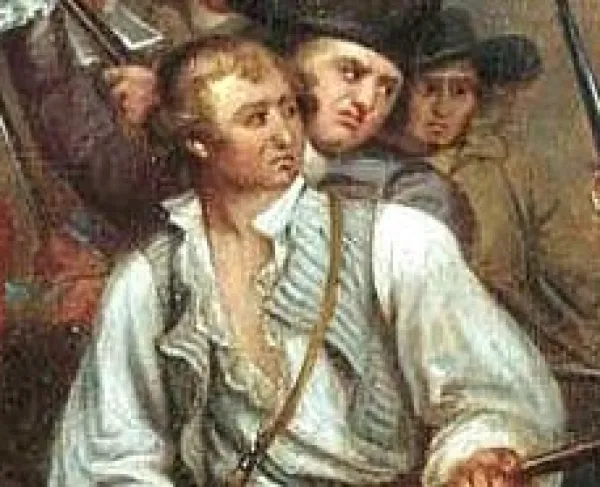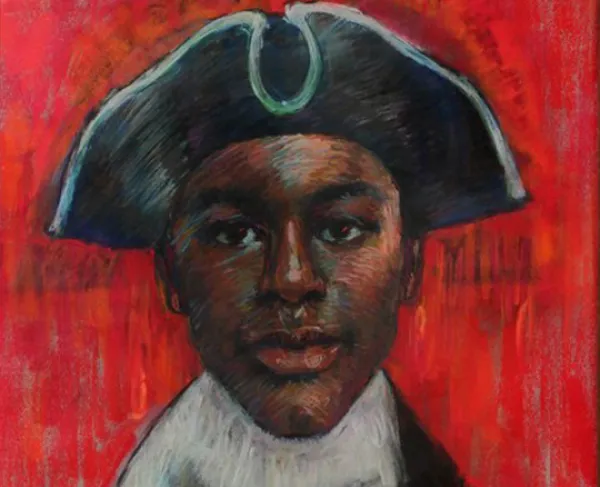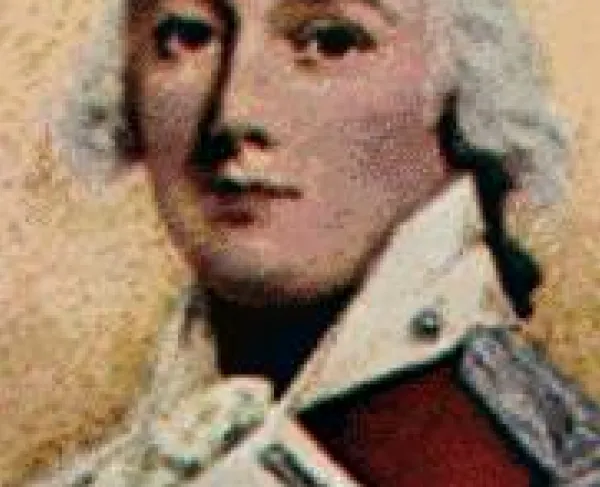Andrew McClary

Andrew McClary served as an officer in the New Hampshire Militia during the Battle of Bunker Hill. Tragically, he was killed by one of the last shots during that battle on June 17, 1775.
McClary’s parents immigrated from Ireland to the Colony of Massachusetts in 1726. Andrew McClary Jr. was born about 1730, and the family moved to Epsom in the Colony of New Hampshire when he was about eight years old. The family’s blockhouse and later tavern became a gathering place for frontier scouts and rangers, allowing McClary to grow up hearing stories of wilderness bravery.
Following in his father and older brother’s footsteps, McClary joined the company of New Hampshire Rangers, part of the famous Roger’s Rangers. Family stories are plentiful about his scouting during the French and Indian War and his attempts to rescue people who had been kidnapped by Native warriors. In addition to his frontier military experiences, McClary joined his father in operating a local tavern and also farmed. He served as the town clerk in Epsom, writing in the civic records and showing education and business understanding. He married Elizabeth McCrillis, and they had seven children—four sons and three daughters.
Like other colonists, McClary had disagreements about Britian’s governance. According to a family story, McClary got into an argument and fight with six British officers while in the town of Portsmouth. The officers tried to throw McClary out of the room, but in the end, McClary forced the officers to escape out a window. His own tavern in Epsom served as a local gathering place, and other leaders like John Goffe and John Stark met at McClary’s tavern to discuss current events. Some accounts suggest that McClary helped to plan the December 1, 1774, attack on the British stronghold at Portsmouth, New Hampshire.
In April 1775, news arrived about the Battle of Lexington and the shots fired between British troops and Massachusetts militia. McClary left his spring ploughing and responded swiftly. About 80 local men assembled and elected Andrew McClary as their captain. Marching rapidly, the unit hurried south toward Boston and arriving in record time after marching through the night. McClary’s company joined with other New Hampshire militia under John Stark’s command, creating the First New Hampshire Regiment with Stark as Colonel and McClary as Major.
On June 16, the First New Hampshire was ordered to join other regiments on Bunker Hill and prepare fortifications. Major McClary helped to organize the defense of the redoubt on Breed’s Hill and took part in the battle on June 17, 1775. Survivors from the redoubt later remembered his loud, steady voice instructing the militiamen as the British advanced up the slopes toward the position. According to some accounts, McClary specific instructed marksmen in his unit to target British officers, hoping their falls would increase the confusion in the British ranks. Eventually, the militia were forced to retreat from their defenses on the high ground and fell back toward Charleston Neck—a narrow connection of land heading toward Cambridge. During the retreat, McClary hurried to get medical supplies for the wounded. Then he returned to Charleston Neck, planning to scout and see if the British were advancing to threaten that position. Several soldiers, including one of his sons, cautioned him, but he brushed aside their concern. As Major McClary returned from his scouting, a British frigate in the Charles River fired. The cannonball struck McClary killing him instantly and horrifically in front of his troops. Later, he was buried with military honors in Medford, Massachusetts.
Since General Joseph Warren technically did not have a commission at the time of his death during the Battle of Bunker Hill, Major Andrew McClary was the highest-ranking commissioned officer killed on the American side during that fight. He was also the last combat death on June 17, 1775. New Hampshire memorialized McClary a few weeks later praising his “great intrepidity and presence of mind in the action, and his noble soul glowed with ardor and the love of his country….”
Related Battles
450
1,054





